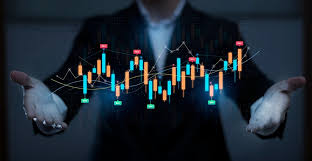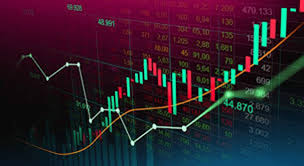
In recent years, the landscape of trading in the Forex market has evolved dramatically. The rise of advanced forex software trading Trading Uganda software solutions has redefined the way traders interact with the market, allowing for more efficient, automated, and data-driven decision-making processes. In this article, we will delve into the significance and functionality of Forex software trading solutions, explore their benefits, and discuss what the future holds for Forex trading technology.
Understanding Forex Trading Software
Forex trading software refers to programs designed to aid traders in executing trades in the foreign exchange market. These solutions range from platforms for manual trading to fully automated systems that execute trades based on pre-defined criteria. They can analyze varying metrics, help with real-time decision-making, and enhance overall trading performance.
Types of Forex Trading Software
There are mainly two types of Forex trading software: manual trading platforms and automated trading systems. Each type serves different trader needs and strategies.
Manual Trading Platforms
Manual trading platforms, such as MetaTrader 4 (MT4) and MetaTrader 5 (MT5), offer traders the flexibility to execute trades based on their analysis and market research. These platforms come equipped with various tools, indicators, and charting capabilities that assist traders in making informed decisions. The key advantage of manual trading is that it allows for a personal touch in executing trades, enabling experienced traders to leverage their intuition and expertise.
Automated Trading Systems
Automated trading systems, often referred to as algorithmic or bot trading, have gained massive popularity due to their ability to execute trades automatically based on specific rules. These systems remove emotional biases from trading, execute trades at lightning speed, and can operate 24/7 without the need for human intervention. The software analyzes market data, identifies trading opportunities, and manages risk, significantly improving a trader’s efficiency.
Benefits of Forex Software Trading
Using software tools for Forex trading provides numerous advantages:

1. Increased Efficiency
Software solutions can process vast amounts of data in real-time, allowing traders to make quick and informed decisions. This speed is crucial in the fast-paced world of Forex, where market conditions can change rapidly.
2. Improved Accuracy
The analytical capabilities of trading software can enhance trade accuracy. Traders can utilize backtesting features to evaluate performance based on historical data, helping to refine trading strategies before deploying them in live trading.
3. Accessibility
With the availability of mobile applications and web-based platforms, users can access trading software from anywhere, at any time, providing significant flexibility for traders juggling various commitments.
4. Risk Management
Effective risk management tools integrated into trading software help manage potential losses. Features like stop-loss orders and risk assessment frameworks allow traders to safeguard their investments, making trading decisions more calculated rather than emotionally driven.
5. Customization
Many trading platforms allow users to customize their interfaces or even develop personalized trading algorithms. This customization ensures that traders can tailor their workflow according to their trading preferences, optimizing their experience.
The Future of Forex Trading Software

As technology continues to advance, the Forex trading software landscape will likely evolve in several ways:
1. Artificial Intelligence and Machine Learning
The integration of AI and machine learning will enable trading software to analyze trends and make predictions with increased precision. These technologies can analyze historical data further and can adapt strategies based on live market behavior, leading to smarter trading decisions.
2. Enhanced Data Security
As the use of trading software increases, the significance of data security becomes more apparent. Future Forex trading solutions will likely prioritize enhanced security measures, ensuring traders’ data and transactions are protected from potential cyber threats.
3. Social Trading Integration
Social trading platforms are gaining traction as traders seek collaborative decision-making. Future software solutions may integrate features that allow users to follow successful traders’ strategies, providing valuable insights and fostering a community-oriented approach to Forex trading.
4. Advanced Analytics
Future developments in Forex software will push the boundaries of analytics, providing traders with deeper insights into market behavior. Enhanced analytic features may include predictive analytics, sentiment analysis, and comprehensive reporting tools, shaping how traders formulate their strategies.
Conclusion
In conclusion, Forex trading software plays a pivotal role in transforming how traders operate within the markets. From providing tools that enhance efficiency and accuracy to integrating cutting-edge technology, these solutions are essential for anyone serious about Forex trading. The future holds promising advancements that will further empower traders, ensuring they remain competitive in an ever-evolving trading landscape. As the market continues to grow and technologies advance, traders who adapt and utilize these software solutions will have a greater chance of success in the complex world of Forex.

